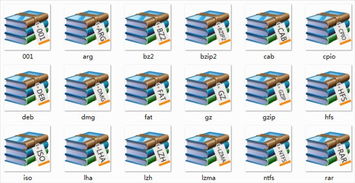
Understanding the 7/32 Drill Bit Equivalent: A Comprehensive Guide
When it comes to selecting the right drill bit for your woodworking or metalworking projects, understanding the drill bit equivalent is crucial. One such equivalent that often comes up is the 7/32 drill bit. In this article, we will delve into the details of the 7/32 drill bit equivalent, exploring its dimensions, uses, and compatibility with various materials.
Dimensions of the 7/32 Drill Bit Equivalent

The 7/32 drill bit equivalent refers to a drill bit that has the same shank diameter as a 7/32 inch drill bit. The shank diameter is the thickness of the part of the drill bit that fits into the drill chuck. In the case of the 7/32 drill bit equivalent, the shank diameter is 7/32 inch or approximately 5.5mm.
It’s important to note that the 7/32 drill bit equivalent may have a slightly different overall length compared to a standard 7/32 inch drill bit. This is because the equivalent may have a longer shank or a different flute design to accommodate specific drilling requirements.
Applications of the 7/32 Drill Bit Equivalent

The 7/32 drill bit equivalent is versatile and can be used for a variety of applications. Here are some common uses:
-
Woodworking: The 7/32 drill bit equivalent is often used for drilling holes in wood for screws, dowels, or other fasteners. Its size allows for a good balance between the hole diameter and the material being drilled.
-
Plastics: The 7/32 drill bit equivalent can also be used for drilling holes in plastics, such as ABS, PVC, or polycarbonate. It provides a clean and precise hole without damaging the plastic material.
-
Metalworking: While not as commonly used in metalworking as larger drill bits, the 7/32 drill bit equivalent can still be used for drilling small holes in metals like aluminum or brass. It is important to use the appropriate drill bit material and cutting speed to ensure successful drilling.
Compatibility with Materials

The 7/32 drill bit equivalent is compatible with a wide range of materials, but it’s important to consider the material’s hardness and the desired hole quality. Here are some key points to keep in mind:
-
Wood: The 7/32 drill bit equivalent works well in softwoods and some hardwoods. However, it may struggle with very hard woods, such as oak or maple, where a larger drill bit or specialized bit may be required.
-
Plastics: The 7/32 drill bit equivalent is suitable for drilling holes in most plastics, including ABS, PVC, and polycarbonate. It’s important to use a drill bit made from a material that is compatible with the plastic being drilled, such as high-speed steel (HSS) or cobalt.
-
Metal: The 7/32 drill bit equivalent can be used for drilling small holes in metals like aluminum and brass. However, it may not be suitable for drilling holes in harder metals, such as stainless steel or titanium, where a specialized drill bit or higher drill speed may be necessary.
Choosing the Right Drill Bit Material
The material of the drill bit can significantly impact the drilling process and the quality of the hole. Here are some common drill bit materials and their advantages:
| Material | Description | Advantages |
|---|---|---|
| High-Speed Steel (HSS) | Commonly used for general-purpose drilling | Good for drilling wood, plastic, and soft metals |
| Cobalt | Contains cobalt, which increases its hardness and heat resistance | Excellent for drilling metals, especially at high speeds |
| Carbide | Very hard and durable, suitable for drilling hard materials | Longer tool life, but more expensive than HSS or cobalt |
Drilling Speed and Coolant



